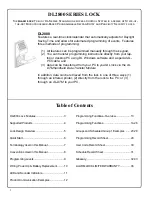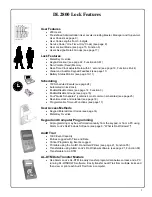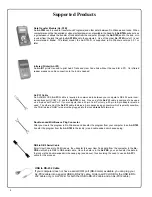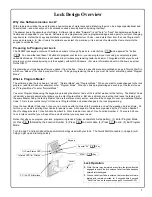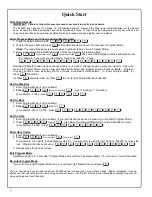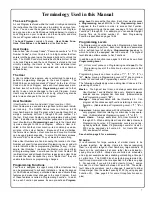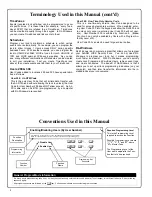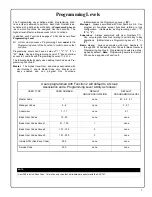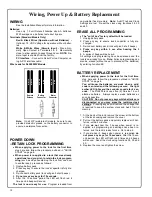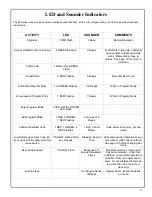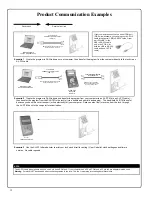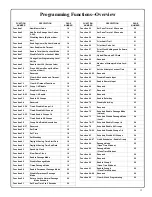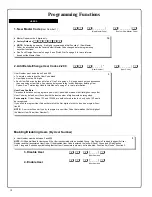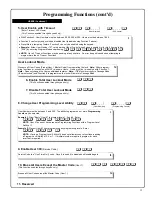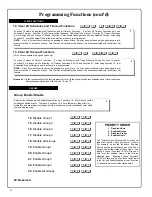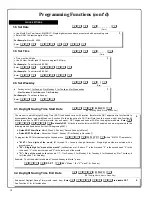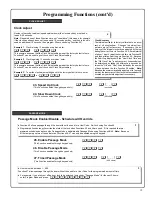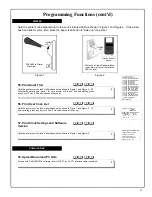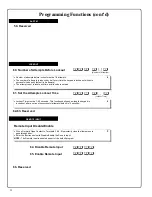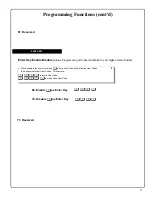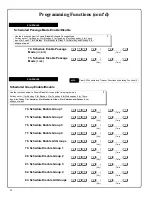
9
The Programming Level defines which Programming Func-
tions a User is allowed to perform. Each User Number is as-
sociated with a defined level of ability--a
Programming Level
-
-as to which Functions the assigned User can access. The
highest level--Master--allows access to ALL Functions.
In addition, each Function (see pages 14-26) has its own fixed
Programming Level
.
A User must possess a Programming Level
equal
to the
Programming Level of the Function in order to access that
Function.
Programming Levels can have a value of "1", "2", "3", "4" or
"M".
Note:
Having a Programming Level of "3" does not allow
access to Functions with Programming Levels of 1, 2 or 4.
The following defaults apply when adding User Codes via Pro-
gramming Function 2:
Master:
The highest level User, and always associated with
User Number 1 and its Master Code only. Master is al-
ways enabled and can program ALL Functions.
(Abbreviated as the
Programming Level
= "
M
").
Manager:
Always associated with User Numbers 2-6. Can
program all Functions except Functions relating to lock
configuration. (Abbreviated as
Programming Level
= "
1
",
"
2
" or "
3
").
Supervisor:
Always associated with User Numbers 7-11.
Can only program Functions relating to certain day to day
operations. (Abbreviated as
Programming Level
= "
1
" or
"
2
").
Basic Users:
Always associated with User Numbers 12
through 200. When adding User Codes for Basic Users via
Programming Function 2, Programming Levels are not as-
signed by default.
Note:
Programming Levels for Users 2-
200 can be assigned via Function 8.
Programming Levels
Users programmed with Function 2 will default to a Group
Association and a Programming Level Ability as follows:
USER TYPE
USER NUMBER
DEFAULT
GROUP ASSOCIATION
DEFAULT
PROGRAMMING LEVEL
Master Code
1
none
M, 4, 3, 2, 1
Manager Codes
2 - 6
none
3, 2, 1
Supervisor
7 - 11
none
2, 1
Basic User Codes
12 - 50
none
none
Basic User Codes Group 1
51 - 100
1
none
Basic User Codes Group 2
101 - 150
2
none
Basic User Codes Group 3
151 - 200
3
none
Initiate DTM (Non-Pass Code)
299
none
none
Service Code
300
none
none
User 299 is a Non-Pass Code. This is the only code that will initiate data transfer with the AL-DTM.
NOTE:
Summary of Contents for Trilogy DL2800
Page 34: ...34 NOTES ...
Page 35: ...35 NOTES ...


